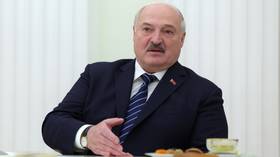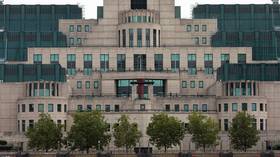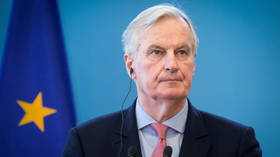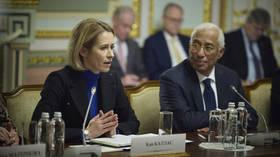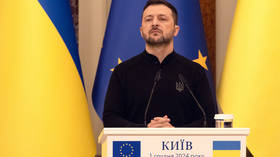Putin raises issue of Zelensky’s legitimacy
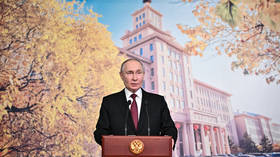
Vladimir Zelensky’s legitimacy as president of Ukraine is an important question not only to his own country, but to Moscow as well, Russian President Vladimir Putin has said. He explained that Zelensky’s status will have a bearing on any potential agreement between the two belligerent countries.
Zelensky’s five-year term in office comes to an end on May 20. Ukrainians were scheduled to head to the polls to elect a new leader on March 31; however, he announced in December 2023 that no presidential or parliamentary elections would be held as long as martial law remains in force. It was imposed after the start of the conflict with Russia in February 2022, and has been repeatedly extended by the Ukrainian parliament since. Last Wednesday, lawmakers prolonged martial law by another three months.
Speaking at a press conference while on a state visit in China on Friday, President Putin said the issue of Zelensky’s legitimacy is something that “Ukraine’s own political and legal system” must address, “first of all the Constitutional Court.” He noted that the country’s constitution foresees “different variants.”
“But to us this does matter because if it comes to the signing of any documents, surely, we should sign documents in such a momentous area with the legitimate authorities,” Putin explained. He added that the Kremlin had regularly stayed in touch with President Zelensky before the hostilities broke out.
The Ukrainian constitution explicitly forbids holding presidential or parliamentary elections in times of war. In March, a senior official from Ukraine’s central election commission clarified to the media that Zelensky’s term would be prolonged automatically until conditions were right to hold an election. This month, Justice Minister Denis Maliuska confirmed this to the BBC.
In late April, Kremlin spokesperson Dmitry Peskov said that a “moment will come soon when many people, including those inside Ukraine, will question [President Zelensky’s] legitimacy.
A survey conducted by Ukrainian pollster SOCIS in early March showed that the incumbent president would have lost to the former top Ukrainian commander, General Valery Zaluzhny, had they both run. The following month, German newspaper Tagesspiegel reported that public support for an “authoritarian” Zelensky had “sunk to 61%.”
In March, Ukrainskaya Pravda claimed, citing MPs, that Zelensky had virtually stripped parliament of its powers and established de facto personal rule. Around the same time, a lawmaker from the president’s own party openly suggested that Ukraine needs a dictatorship to survive the conflict with Russia.
